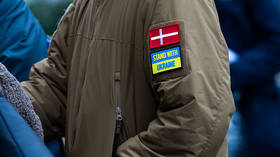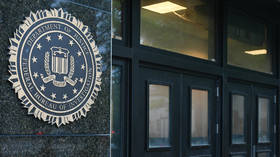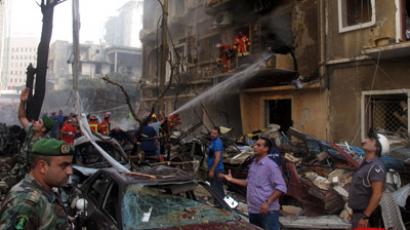Iran blames Israel for Beirut blasts as Al-Qaeda offshoot lays claim
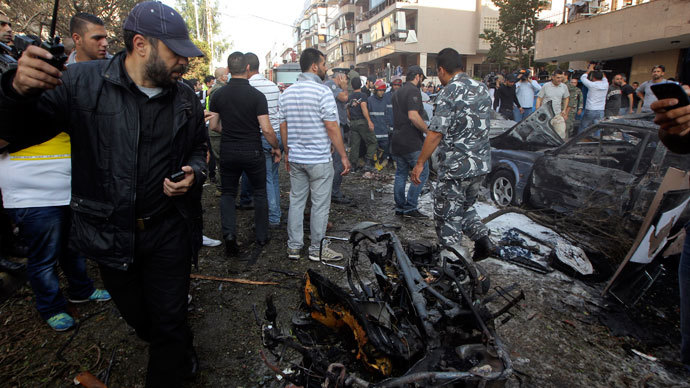
The Al-Qaeda-linked Abdullah Azzam Brigades have claimed responsibility for the Beirut Iranian embassy suicide blast which killed 23 and injured a further 146. Meanwhile, the Iranian Foreign Ministry has stated that Israeli mercenaries were responsible.
The Brigades, a Lebanese Al-Qaeda-affiliated Sunni jihadist
group, stated that it instigated the twin suicide bomb attack in
Beirut, according to Reuters.
The Abdullah Azzam Brigades' leader, Sheikh Siraj al-Din Zureiqat
forewarned that armed assaults would continue across Lebanon
until Iranian forces left Syria and captives were released. Iran
has firmly denied sending troops to Syria in support of President
Bashar Assad’s government, while publicly recognizing its sending
of military personnel to help train and advise Syrian forces.
"It was a double martyrdom operation by two of the Sunni
heroes of Lebanon," Zureiqat wrote on Twitter.
The US Department of State designates the Abdallah Azzam Brigades
(AAB) as a Foreign Terrorist Organization (FTO). It has been in
existence since 2009 and has “repeatedly articulated its intent
to carry out attacks against Western interests in the Middle
East,” according to the US DoS website.
It has also been responsible for rocket attacks on Israeli
civilians. However, the group has been known to assume false
responsibility in the past.
Moments before the claim was made, the Iranian ambassador to
Lebanon, Ghadanfar Roknabadi, said that there was no doubt that
the Iranian embassy was the target of the explosions and that
they were “proud to be ahead in confronting the Israeli
schemes.” He added that the blast served Zionist entity
schemes, according to Lebanon’s TV station Al-Manar.
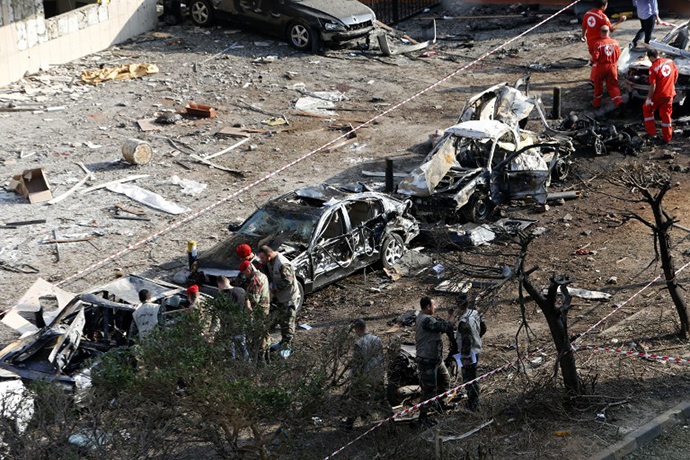
The cultural attaché of the embassy, Ebrahim al-Ansari, was been
confirmed dead. Roknabadi said that he had been ‘martyred’. Other
embassy staff members were later confirmed to be safe.
The Iranian Foreign Minister Mohammad Javad Zarif said terrorists
are trying to undermine the P+1 talks, after an Iranian foreign
ministry spokeswoman accused Israel of being behind the blasts.
Zarif did not reiterate the claim against Israel pronounced by
his ministry but said: "We have reason to be suspicious of
every move they make. Every move they make is about spreading
tension."
The foreign minister also said that the situation of the rising
extremism is alarming and warned that unless we deal with it
seriously, "it will engulf all of us.”
“Once we see a flare-up of the tension that is boiling in
Syria there will hardly a possibility of stopping it at the
Syrian border, or even in the Middle East.”
The Chairman of the Knesset's Security and Foreign Affairs
Committee denied any possible involvement of Israel in the
attack.
“We are blamed for everything that happens in the Middle East.
Sometimes there are things we take responsibility for, because
they have to do with Israel's security, ... but Israel's security
gains nothing from the bloodshed in Beirut,” Tzachi Hanegbi
said, as quoted by Xinhua.
The harrowing scene was primarily caused by 100lb (50kg) of explosives loaded into a car, according to AP. Security sources on the ground said there were two blasts - the first caused by a person on a motorbike carrying some 4.4lbs (2kg) of explosive, while the second was by a suicide bomber who tried to ram the compound with the car.
However, there are conflicting reports as to how the initial
blast unfolded. Eyewitnesses claimed that a man was mounted on a
motorbike, while a Lebanese official told Reuters that the man
wearing an explosives belt was seen rushing towards the embassy’s
outer wall before blowing himself up.
Witnesses at the scene said that the explosions occurred within
one or two minutes of each other.







